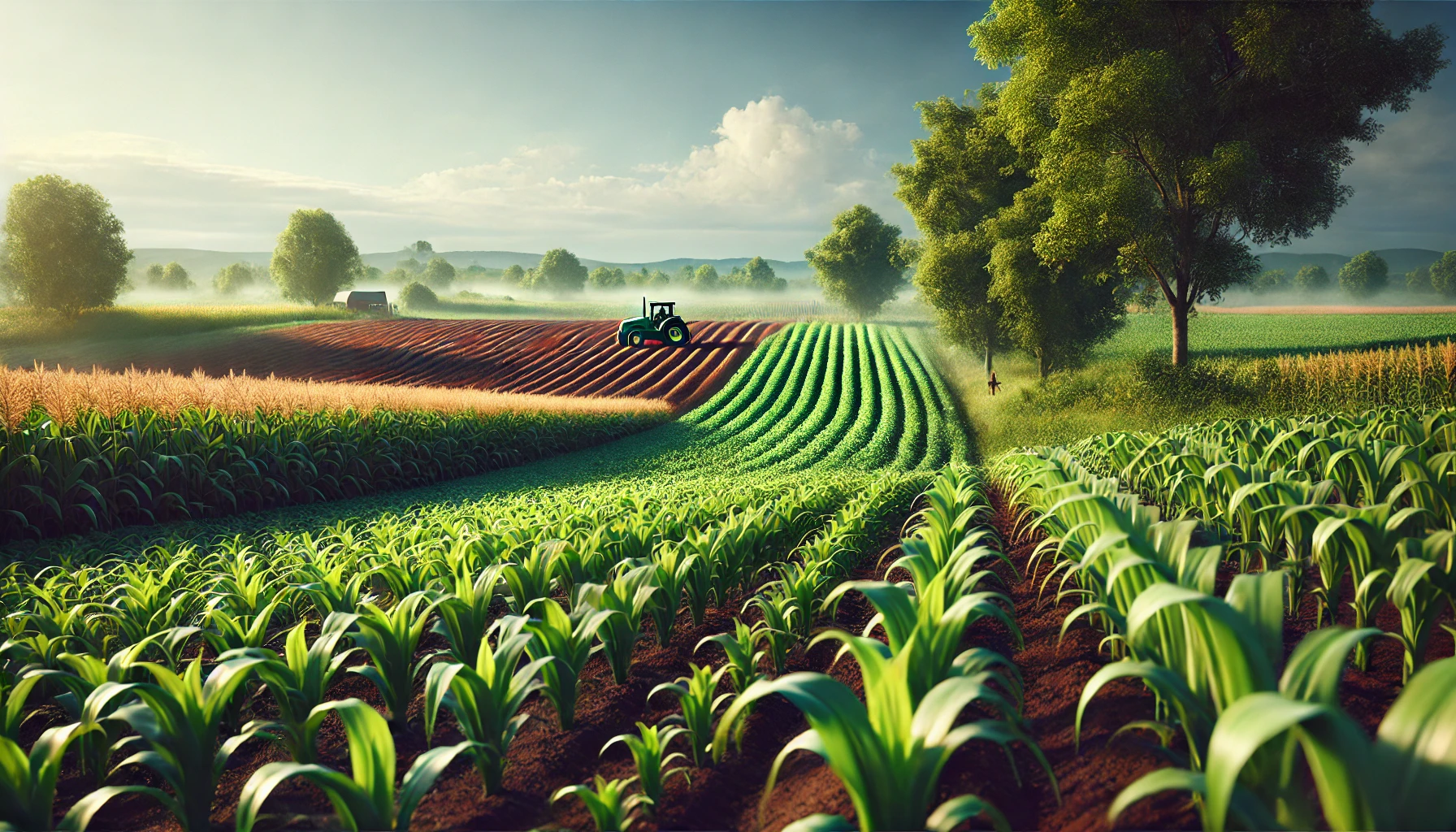Sustainable Agriculture is more than just an environmental choice—it can actually raise the value of your agricultural land over time. As investors, landowners, and buyers become more conscious about climate impact and responsible agriculture, land managed with sustainable methods is gaining attention for both its ecological and financial benefits.
Here’s how adopting sustainable agriculture practices can increase the worth of your land—and why it’s becoming important for anyone involved in farmland investment.
1. Healthier Soil Means Long-Term Value
When you use methods like crop rotation, organic compost, and reduced chemicals, your soil stays fertile for longer. This matters because soil health directly impacts crop yields, which in turn affects how much your land can earn.
In areas like Punjab and Haryana, overuse of fertilizers has damaged soil quality. On the other hand, farmland that’s managed with sustainable practices stays productive year after year. If you’re looking to buy agriculture land or are searching through farms for sale, this kind of productive land is a better long-term investment.
Why it matters: Buyers are willing to pay more for farmland that doesn’t need costly restoration. Productive soil also attracts better lease rates and ensures steady income from farming activities.
2. Lower Costs Over Time
Sustainable farming often means spending less. Using natural compost instead of synthetic fertilizers, practicing water-saving irrigation, and managing pests without harsh chemicals can all reduce the money needed to maintain your land.
For example, drip irrigation cuts down on water bills and prevents soil damage. These savings make the land easier to manage and more profitable, whether you’re using it yourself or leasing it out.
Why it matters: Farmlands with lower operating costs offer better profit margins. Buyers and tenants in your farm search will be drawn to land and farm opportunities that don’t come with heavy financial baggage.
3. Increasing Demand for Sustainable Land
There’s a growing market for agricultural land that supports organic or sustainable farming. People are more aware of where their food comes from and prefer produce grown responsibly.
In states like Uttarakhand and Himachal Pradesh, farms certified for organic produce often attract premium buyers—especially exporters or retailers who want high-quality goods. This rising interest adds value to such farmland listings.
Why it matters: More demand means better resale value. Farm land for sale that meets sustainability standards becomes a niche but profitable category.
4. Government Help Makes It Easier
The Indian government supports sustainable farming with subsidies, tax breaks, and technical support. For example, under schemes like the Paramparagat Krishi Vikas Yojana (PKVY), you can get help with organic certification and financial aid for eco-friendly practices.
There are also benefits when it comes to capital gain on agricultural land—taxes tend to be lower, and sustainable land is often eligible for extra support when applying for a loan for agricultural land purchase.
Why it matters: These benefits make the land more appealing to buyers. It saves money and also simplifies financing and legal processes.
5. Better Market Prices for Produce
Organic and sustainably grown food often sells for more. Even if the quantity is slightly less than conventional farming, the quality makes up for it. You can earn more per unit, whether you’re growing vegetables, fruits, or grains.
In drier regions like Rajasthan, water-saving techniques and composting help maintain soil productivity. Farmers using such methods see fewer dips in output and spend less on inputs, making their land more valuable over time.
Why it matters: Good-quality produce brings better prices. This consistency in income adds to the value of your agriculture farm near me or farmland listings.
6. A Long-Term, Safe Investment
As environmental concerns grow and regulations tighten, sustainable agriculture becomes a safer bet. Farmland that avoids pollution, conserves water, and protects biodiversity is seen as future-proof.
Companies and buyers want land that aligns with the sustainable agriculture definition—something that doesn’t just give returns now but also holds value in the years ahead. These are the kinds of land and farm investments that stand the test of time.
Why it matters: A farm that aligns with sustainable trends is more likely to hold or grow in value, avoiding environmental fines and offering stable long-term ROI.
Final Thoughts
Sustainable farming isn’t just good for the environment—it’s smart business. Healthier soil, fewer maintenance costs, higher demand, and better returns make these practices a key part of increasing the value of your agricultural land.
Whether you’re looking to buy agriculture land, expand your portfolio of farms for sale, or simply improve the value of your current landholding, shifting to sustainable methods is worth considering.
If you’re starting out, look for farmlands where some of these practices are already in place. Over time, you can build on them and turn your land into a resilient, high-value asset in today’s changing world.




Join The Discussion